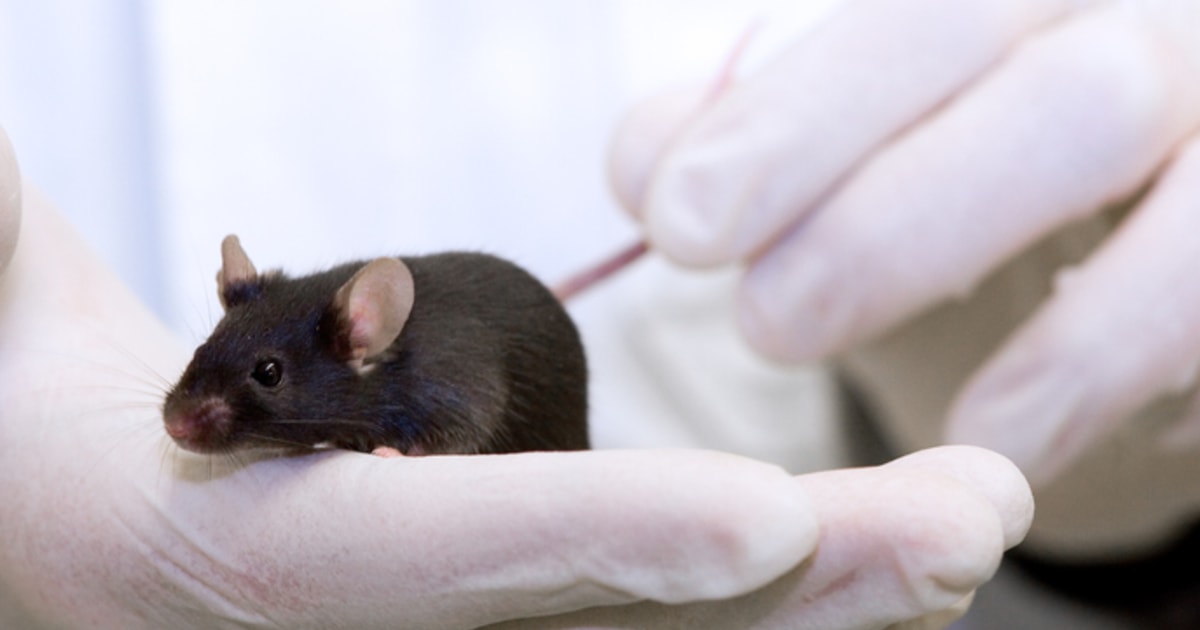Aging can be accelerated or reversed by scientists, at least in mice, according to research published Thursday in the scientific journal Cell.
"This is the first study to show that
we can have precise control over the biological age of a complex animal
, that we can move it forward and backward at will," said David Sinclair, a professor of genetics at the Blavatnik Institute at the University of New York Medical School. Harvard, co-director of the Paul F. Glenn Center for Research in the Biology of Aging and one of the study's authors.
The study suggests that in addition to aging the mice, they can reverse that process and give them back some signs of youth.dra_schwartz / Getty Images
"We hope that these results will be seen as a turning point in our ability to control aging," he stressed.
After discovering the existence of genes to manipulate aging in yeast, Sinclair began to explore the theory that there is "a switch" that allows scientists to control longevity.
[The popularity of a weight-loss drug leaves diabetics without its treatment]
Thirteen years later, he managed to age the brain, eye, muscle, skin and kidney tissue of mice.
And even achieve the opposite: rejuvenate them by restarting their cells.
In an article published on the Harvard University website, Sinclair explained that he was able to reset the rodent cells at will in the laboratory.
Their research showed that "the degradation of DNA organization and regulation, known as epigenetics, can cause an organism to age." Mistaking that information makes mice age, and restoring it reverses the process.
Do you know what serum therapy is and what its benefits are?
An expert explains
Dec 27, 202205:09
"It's like restarting a malfunctioning computer
," Sinclair said.
"This is the first study to show that epigenetic change is the main driver of aging in mammals."
His work details that chemical and structural changes in chromatin, a complex of DNA and proteins that make up chromosomes, promote the aging process without altering the genetic code.
"We hope that these findings will transform the way we view the aging process and approach the treatment of diseases associated with it," said Jae-Hyun Yang, another of the research authors.
[A new Alzheimer's drug will cost $26,500 a year. Who will be able to acquire it?]
The theory that aged cells retain a memory of their young epigenome "is very provocative," and while the study supports the idea, "it doesn't prove it,"
Maximina
Yun, a regenerative biologist at the University of Technology at Dresden (Germany).
For her, the researchers must replicate the results in other animals and explain their mechanism so that the study can lead to treatments in humans with age-related diseases.
They study the possible prohibition of gas stoves due to harmful effects on health
Jan 12, 202302:39
The scientists, for their part, hope that their work will inspire others to investigate and find new ways to control this process to prevent and eliminate ills linked to old age.
In addition to understanding what causes the deterioration of the body to prolong not only "the number of years that a person remains alive, but also healthy."
"We're talking about
taking someone who is old or sick and making their whole body or a specific organ young again
, so the disease goes away," Sinclair said.
However, this will take years or decades, he clarified.
He just started experimenting with primates and there is a long way to go before tests can be carried out in humans safely.

